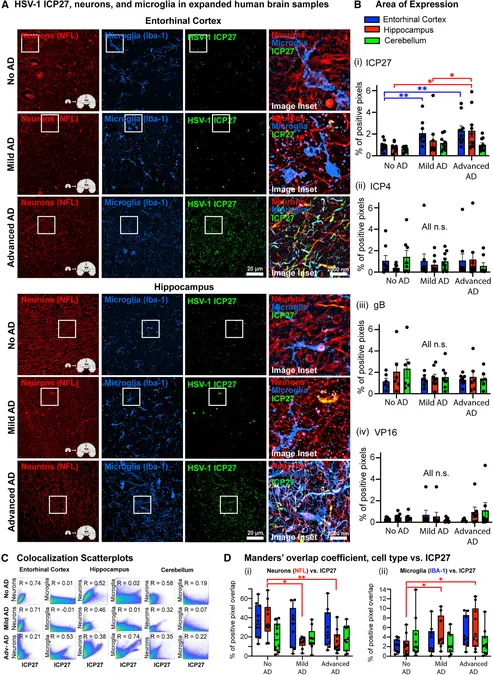
Shocking New Study Links Herpes Virus to Alzheimer's Disease: A Potential Game-Changer?
2025-01-02
Author: Sarah
Introduction
Recent groundbreaking research from the University of Pittsburgh has unveiled a surprising connection between Alzheimer's disease and the herpes simplex virus-1 (HSV-1). This study, published in the renowned journal Cell Reports, raises questions about the role of viral infections in the progression of this devastating neurological condition.
Dual Role of Tau Protein
The study highlights a dual role of tau protein, which has long been regarded as a detrimental factor in Alzheimer’s pathology. The researchers found that tau may initially serve to protect the brain against HSV-1, but as the disease progresses, it may also contribute to neuronal damage. "Our research challenges the traditional understanding of tau, suggesting it plays a complex role in the brain's immune response," stated senior author Or Shemesh, Ph.D., from the Department of Ophthalmology at Pitt.
Presence of HSV-1 in Alzheimer’s Patients
Through meticulous analysis, scientists discovered the presence of HSV-1 protein in brain samples of Alzheimer’s patients, particularly co-localized with phosphorylated tau tangles—hallmarks of Alzheimer’s in regions heavily impacted by the disease. This fascinating discovery indicates that the virus might influence the aggregation of tau, potentially providing a protective factor that diminishes after infection.
Innovative Research Methods
In an innovative twist, the research involved studying miniature human brain models grown in Petri dishes, revealing that HSV-1 infection could alter tau protein levels and its functionality, possibly reducing the likelihood of human neuron death post-infection. These findings have significant implications for understanding Alzheimer’s disease and may pave the way for novel therapeutic approaches targeting not only the virus but also the brain's immune mechanisms.
Future Research Directions
While the exact ways in which HSV-1 may modulate tau-related neurodegeneration remain unclear, Shemesh and his team are committed to unraveling these mysteries in future studies. They intend to investigate therapeutic strategies aimed at disrupting HSV-1’s activity and enhancing the brain’s immune defense, and they are exploring whether similar viral interactions might be relevant in other neurodegenerative conditions like Parkinson's disease and ALS.
Conclusion
With such a promising avenue of research, health experts and Alzheimer's advocates alike are optimistic that these findings could lead to revolutionary treatments. As science unveils more about the mystery linking viruses and Alzheimer’s, this could redefine how we approach prevention and management of the disease itself. Stay tuned for updates on this captivating research that might just change everything we know about Alzheimer’s disease and its underlying causes!




 Brasil (PT)
Brasil (PT)
 Canada (EN)
Canada (EN)
 Chile (ES)
Chile (ES)
 Česko (CS)
Česko (CS)
 대한민국 (KO)
대한민국 (KO)
 España (ES)
España (ES)
 France (FR)
France (FR)
 Hong Kong (EN)
Hong Kong (EN)
 Italia (IT)
Italia (IT)
 日本 (JA)
日本 (JA)
 Magyarország (HU)
Magyarország (HU)
 Norge (NO)
Norge (NO)
 Polska (PL)
Polska (PL)
 Schweiz (DE)
Schweiz (DE)
 Singapore (EN)
Singapore (EN)
 Sverige (SV)
Sverige (SV)
 Suomi (FI)
Suomi (FI)
 Türkiye (TR)
Türkiye (TR)
 الإمارات العربية المتحدة (AR)
الإمارات العربية المتحدة (AR)